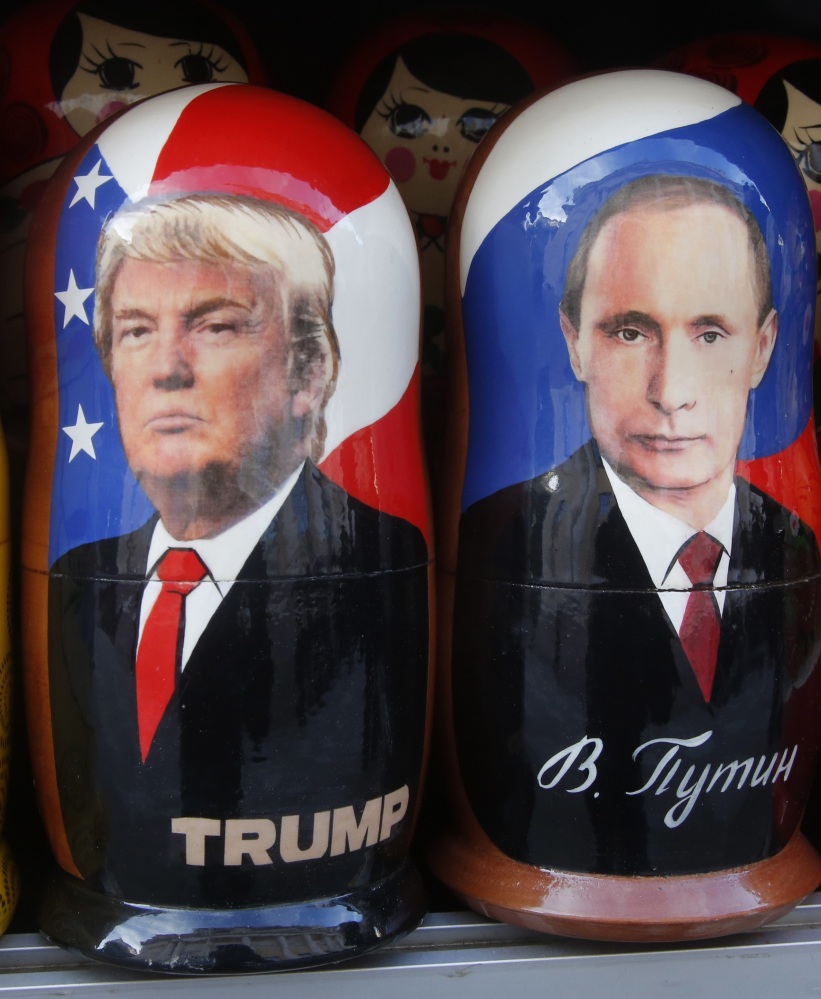NOVOSIBIRSK, Russia — Throughout the 25 years I have lived in Siberia, people have turned to me as a translator, not of English, but of America – and never more so than now. From my university students to the Kazakh fast-food cashier at the mall, they say just “Trump?” hoping I can provide a translation that will reinforce their desire for something positive to happen in the U.S.-Russia relationship.
For many Americans, 2008 was the “hope” election. The unexpected victory of Donald Trump turned 2016 into the “hope” election for many Russians. Not because they like Trump – I have not met anyone who is confident this is a good thing – but because the alternative was frightening.
The increasing demonization of Russia reached a crescendo in 2014, when Hillary Clinton compared Vladimir Putin’s actions in Ukraine to Adolf Hitler’s in the 1930s. Most Russians think of Putin as the man who stopped the social chaos and economic devastation that characterized newly democratic Russia in the 1990s.
Equating their president with the man responsible for killing 27 million of their relatives and friends (including Putin’s older brother) was the step too far, especially since it was said amid NATO movements best explained by Russian history scholar Stephen Cohen: “There has never been such an amassing of hostile military force on Russia’s Western frontiers since June 1941, when Hitler invaded the Soviet Union.”
The hope that Trump represents came with his simple question, “Wouldn’t it be good if we could get along with Russia?” Yes, as his tweets go beyond grudges and domestic affairs, concerns are growing. One colleague was particularly disturbed by Trump’s comments on international institutions: “This is very dangerous – you cannot rebuild these institutions in a day.”
Still, it appears Russians have more faith in American democracy than Americans do these days. Rhetoric, policies and the mystifying Electoral College system aside, the outsider defeated the establishment candidate. To Russians, that possibility is the heart of the democratic promise and something to be celebrated.
My worries about the U.S.-Russian relationship started long before Trump rode down the escalator into history. The disconnect between reality and the impression people in America have about life in Russia has gone from surprising to troubling and has now reached the stage of alarming.
Of course, bad things happen here in Russia and there is injustice, but these co-exist with my work at a top university where I have total freedom in my classroom. Similar to schools in America, my eighth-grader was taught how to protest in her civics class, she was against animal cruelty, her best friend was pro-feminism and a boy was against movies because they are too expensive.
Thousands of people in my city recently applied those skills in minus-20 temperatures to protest an increase in utility rates. Twenty-five years into one of the newest democracies and it is not perfect, but more people are active than ever before, pushing for the same things people in America are fighting for: access to good health care, education and jobs.
Equally disorienting is the tone and certainty that define discourse on all sides of all issues in America today. The anger, sarcasm and meanness expressed by everyone toward anyone they don’t agree with or who has made choices they don’t understand are as shocking to me as the title “President” before the name “Trump.”
Our ability to listen, respect differences and work with people who we don’t agree with – that is what made America special. Take that away, and the meaning of America is lost: Intolerance contradicts everything developing democracies believe to be part of the essential idea, something to strive for.
Sometimes being an American here is a burden, especially on trains, when I’d like to rest but people hear the accent and want me to tell them about America. However, my sense of responsibility to live up to their image of America and chat has never gone unrewarded.
Not long ago I shared a coupe with a woman who was only 59 but had no teeth and a bad heart and was a cancer survivor. Born in a village, she spent her life working in a factory. Her doctor said the 30-hour train ride was too dangerous, but she had to do it in order to take care of her grandson so her daughter-in-law could go back to work. As we neared the station, her son called her cellphone, confirming they’d meet her and asking how she felt. She answered, “I have lived to spend time with an American, I never dreamed that would happen, I am fine.”
We need to remember that our great burden as Americans is to live up to the idealized image that many people around the world still have of us. They are watching and hoping.
Send questions/comments to the editors.


